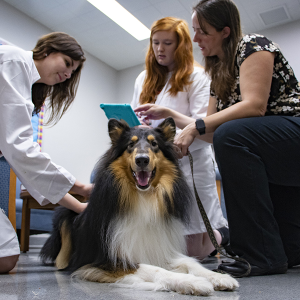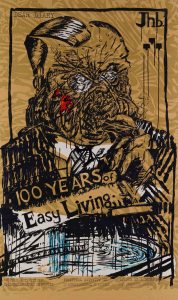Susan Meiselas, a pioneering figure in the realm of documentary photography, has left an indelible mark on the art world with her evocative storytelling through images. Her photography career took off unexpectedly while she was pursuing a master’s degree at the Harvard Graduate School of Education, where her seminal photographic series titled “44 Irving Street, Cambridge, MA” was born. Today, this remarkable work is showcased at the Harvard Art Museums, capturing the essence of her early encounters with her neighbors in a Cambridge boarding house. Best known for her poignant documentary photography of the insurrection in Nicaragua and her keen observations of carnival strippers, Meiselas reflects on how these formative experiences influenced her artistic journey. Through her lens, Meiselas has consistently explored themes of connection and representation, inviting viewers to engage deeply with the stories behind each photograph.
In the landscape of visual storytelling, Susan Meiselas stands out as an influential documentary photographer whose work transcends mere representation. Her collection, known as “44 Irving Street, Cambridge, MA,” sheds light on her journey into photography while revealing the intimate narratives of her neighbors through the lens of her camera. As a photographer, educator, and president of the Magnum Foundation, Meiselas’s approach extends beyond traditional methods; she aims to foster connections and illuminate the complex dynamics between subjects and their portrayals. By examining the interplay of identity and space in her photographic series, Meiselas engages audiences in a conversation about the power of images and the relationships that define us. Her impactful work not only showcases her artistic evolution but also enriches the broader discourse on the role of documentary photography in society.
The Impact of ’44 Irving Street’ on Susan Meiselas’ Career
Susan Meiselas’ early project, ’44 Irving Street, Cambridge, MA,’ was not merely an academic exercise; it served as a pivotal moment in her burgeoning photography career. The series, created while she was pursuing her master’s degree at the Harvard Graduate School of Education, allowed her to experiment with the medium in a personal context, exploring the lives of her neighbors in a boarding house. Through black-and-white portraits and intimate glimpses into their personal spaces, Meiselas set the foundation for her approach to documentary photography, characterized by deep empathy and sociological insight. This innovative project helped her understand the power of storytelling through photography, a theme that would resonate in her future works.
The essence of ’44 Irving Street’ lies in the relationships Meiselas forged with her subjects. Their candid responses to her photographs not only enriched the project but also shaped her understanding of representation and identity. For example, Gordon’s reflections on solitude and Carol’s expressions of creativity provided profound insights into their lives, inviting viewers to contemplate the narratives behind each image. These experiences highlighted the importance of collaboration and connection between the photographer and the subject, a concept that would later inform her extensive work in social documentary.
The Evolution of Documentary Photography Through Meiselas’ Lens
Documentary photography is about capturing reality, yet Susan Meiselas brings an exceptional depth to the genre that transcends mere visual representation. Her ability to engage with her subjects and document their stories reveals a transformative approach to photography. In projects like ’54 Irving Street,’ she moved beyond traditional boundaries, where the act of photographing became a dialogue between the observer and the observed. Through her lens, she illuminated narratives of struggle and resilience, making her work not just a record of events but also a commentary on the human condition.
Over the decades, Meiselas’ photographic series have consistently delved into complex themes. From documenting the Nicaraguan insurrection to her explorations of carnival strippers, she asks poignant questions about power dynamics, representation, and the shared human experience. In each series, there is an evident desire to foster a deeper understanding among viewers, challenging them to reflect on their perceptions of identity and community. Her recent publication, ‘Collaboration: A Potential History of Photography,’ further examines the collaborative nature of photography, reiterating her belief that documentary work can be a means of inclusive storytelling.
Dissecting the Philosophy Behind Meiselas’ Artistic Process
The philosophy underpinning Susan Meiselas’ body of work is deeply rooted in the need for connection and understanding. She reflects on her formative project at the Harvard Graduate School of Education, where her interaction with neighbors led her to discover the transformational power of photography. Rather than positioning herself solely as an observer, Meiselas actively engaged with her subjects, fostering a sense of trust and collaboration that enriched the authenticity of her work. This approach has been a constant thread throughout her career, influencing her subsequent projects in documentary photography that challenge traditional narratives.
Meiselas’ artistic process is characterized by her unwavering commitment to inclusivity and representation. In her discussions on power dynamics within photography, she emphasizes the critical nature of participation when documenting subjects’ lives. This philosophy echoes through her extensive range of work, showcasing not just the physical aspects of her subjects but also the emotional and cultural contexts that define their existence. Meiselas advocates for a collaborative exchange as essential in photography, ensuring that stories are told with depth and respect.
Exploring Themes of Identity and Representation in Meiselas’ Work
Identity and representation are recurring themes throughout Susan Meiselas’ photography career, particularly in her seminal work ’44 Irving Street.’ Each photograph serves as a narrative piece that reflects the complex identities of the individuals she documents. Meiselas’ unique approach allows her to capture not just the visual elements but the emotional essence of her subjects, as seen through their personalized living spaces and expressions of self. This commitment to showcasing individuality reflects a deeper understanding of how identity is constructed and perceived in societal contexts.
In subsequent projects, Meiselas has continued to interrogate these themes, pushing the boundaries of documentary photography to explore how cultural identities are represented in different facets of life. Her ability to weave personal narratives with broader societal issues lends her work an introspective quality, inviting viewers to engage critically with the images presented. By addressing identity in a holistic manner, she not only champions the voices of her subjects but also encourages a dialogue about the nature of representation in the arts.
The Role of Education in Meiselas’ Artistic Journey
Education played a crucial role in shaping Susan Meiselas’ artistic journey, particularly during her time at Harvard where her interest in documentary photography flourished. Enrolling in a course that emphasized the sociological aspects of photography, Meiselas discovered how the camera could serve as a tool for understanding human connection. This academic foundation provided her with the critical skills needed to approach photography not just as an art form but as a means of storytelling, allowing her to engage deeply with her subjects’ lives.
After her graduation, Meiselas applied these educational principles to her teaching. Working with students in the South Bronx, she used photography as a vehicle for storytelling, encouraging them to capture their surroundings through simple pinhole cameras. This pedagogical approach reflects her belief in narrative as a connective tissue that binds individuals to their communities. Through such educational initiatives, Meiselas expanded the scope of documentary photography, reinforcing its potential to foster understanding and nurture creative expression among younger generations.
Understanding Collaborative Efforts in Meiselas’ Documentary Projects
Collaboration stands at the heart of Susan Meiselas’ artistic philosophy, particularly in her documentary projects that illuminate complex social issues. Her work is defined by an emphasis on building relationships with her subjects, resulting in images that are not merely orchestrated views but collaborative narratives. In many cases, Meiselas has invited her subjects to voice their reflections and experiences, thereby enriching the photographic dialogue and making the art form more participatory. This collaborative spirit transforms photography into a shared experience, allowing for deeper engagement and understanding.
In her recent work and discussions, Meiselas advocates for recognizing the voices behind the subjects in her photographs. This aspect was particularly apparent in her book ‘Collaboration: A Potential History of Photography,’ where she explores how collaborative practices can change the perception of the photographer-subject dynamic. Her assertion that photography should include the contributions and perspectives of those being photographed not only challenges traditional power structures but also fosters a more inclusive understanding of narrative construction that enriching the discipline of documentary photography.
How Documentary Photography Reflects Societal Changes: Meiselas’ Perspective
Documentary photography serves as a powerful lens through which societal changes can be dissected and understood, a facet that Susan Meiselas has skillfully navigated throughout her career. Her earlier works, including ’44 Irving Street,’ highlight individual experiences within broader social contexts, shedding light on the dynamics of community life during pivotal moments in history. As she captures the essence of her subjects, Meiselas recognizes the significance of documenting not just the visible, but the nuances that tell stories of resilience, struggle, and transformation in society.
In her later projects, Meiselas continues to address urgent social issues, whether exploring war, displacement, or cultural identity. This adaptability in her thematic choices showcases how documentary photography can evolve as society does, reflecting changing narratives and challenges. Through her lens, Meiselas urges viewers to confront uncomfortable truths and embrace the multifaceted layers inherent in the human experience, effectively illustrating how art can provide commentary on the historical and social fabric of our world.
The Exhibition of Meiselas’ Works at Harvard Art Museums
The ongoing exhibition of Susan Meiselas’ ’44 Irving Street, Cambridge, MA’ at the Harvard Art Museums presents an opportunity to engage deeply with her work. Featuring a selection of gelatin silver prints from this landmark series, the exhibition not only showcases her growth as a photographer but also the evocative power of personal storytelling through images. Visitors can witness the intricacies of each portrait and the context of the living spaces depicted, which reflect the diverse lives of her neighbors during her formative years.
Moreover, the exhibition serves as an interactive experience for attendees, who can access the poignant written responses from Meiselas’ subjects by means of QR codes located on the gallery walls. This innovative integration allows the audience to partake in the dialogue surrounding the images, deepening their understanding of identity, perception, and connection through art. By revisiting her groundbreaking work, the exhibition reaffirms the timeless relevance of Meiselas’ photographic practice and its ongoing impact on documentary photography today.
Frequently Asked Questions
What is Susan Meiselas known for in her photography career?
Susan Meiselas is renowned for her documentary photography, particularly her work capturing social and political issues. She gained prominence for her series on the Nicaraguan insurrection in the late 1970s, as well as her earlier piece “44 Irving Street, Cambridge, MA,” which marked a pivotal point in her photography career.
How did Susan Meiselas’ ’44 Irving Street, Cambridge, MA’ project influence her work?
The ’44 Irving Street, Cambridge, MA’ project played a crucial role in shaping Susan Meiselas’ documentary photography career. It allowed her to explore the connections between people and their living spaces, leading to deeper themes of representation and connection that remain central to her work.
Where can I view Susan Meiselas’ ’44 Irving Street’ photographic series?
The ’44 Irving Street, Cambridge, MA’ photographic series by Susan Meiselas is currently on display at the Harvard Art Museums. The exhibition showcases her early black-and-white prints from the series, highlighting her approach to documentary photography.
What themes are prevalent in Susan Meiselas’ documentary photography?
Prevalent themes in Susan Meiselas’ documentary photography include the exploration of human connections, the complexity of representation, and the balance between positive and problematic interactions between the photographer and subjects. These themes were notably explored in her project ’44 Irving Street, Cambridge, MA’.
How did Susan Meiselas’ education at Harvard influence her photography career?
While pursuing her master’s degree at the Harvard Graduate School of Education, Susan Meiselas took a photography course that sparked her interest in documentary photography. This led to her creation of ’44 Irving Street, Cambridge, MA,’ which became a foundation for her career in visual storytelling.
What can visitors learn from Susan Meiselas’ photographic series at the Harvard Art Museums?
Visitors to the Harvard Art Museums can learn about the intimate stories of the residents of Susan Meiselas’ boarding house through her ’44 Irving Street, Cambridge, MA’ series. The exhibition includes personal responses from her subjects, which provide insight into their lives and the impact of photography on personal identity.
What is the significance of the responses from subjects in Susan Meiselas’ photography?
The responses from subjects in Susan Meiselas’ ’44 Irving Street, Cambridge, MA’ project are significant as they reveal the subjects’ personal reflections on their identities and experiences captured through her lens. This interplay enriches the narrative of her documentary photography and emphasizes the importance of collaboration in the art form.
Can Susan Meiselas’ work be linked to social storytelling in photography?
Yes, Susan Meiselas’ work, especially in her ’44 Irving Street, Cambridge, MA’ series, is closely tied to social storytelling in photography. She emphasizes narrative and connectivity through her images, showcasing the stories of individuals in their spaces and reflecting broader social themes.
| Key Point | Details |
|---|---|
| Introduction to Susan Meiselas | Susan Meiselas is a documentary photographer and filmmaker, currently the president of the Magnum Foundation. |
| Origin of Photography Career | Her photography career began while studying for her master’s at Harvard, where she created the ’44 Irving Street, Cambridge, MA’ series. |
| Engagement with Subjects | Meiselas connected with her subjects by photographing her neighbors and discussing feelings about their images. |
| Thematic Focus | Her work explores the themes of connection, representation, and the dynamics between photographer and subject. |
| Influence and Future Work | The ‘Irving Street’ project influenced her teaching methods, integrating photography into storytelling for students. |
| Current Exhibit | Her photographs from the series are currently on display at the Harvard Art Museums until April 6. |
Summary
Susan Meiselas has made a significant impact in the field of documentary photography, where her experiences at ’44 Irving Street, Cambridge, MA’ became pivotal in shaping her career. Through her distinct approach to photography, she explores the deep connections between individuals and the stories they tell through their personal spaces. Her work not only highlights the importance of representation but also emphasizes the collaborative nature of photography as a medium. With current displays of her influential works at Harvard Art Museums, Meiselas continues to inspire new generations of photographers and storytellers.









